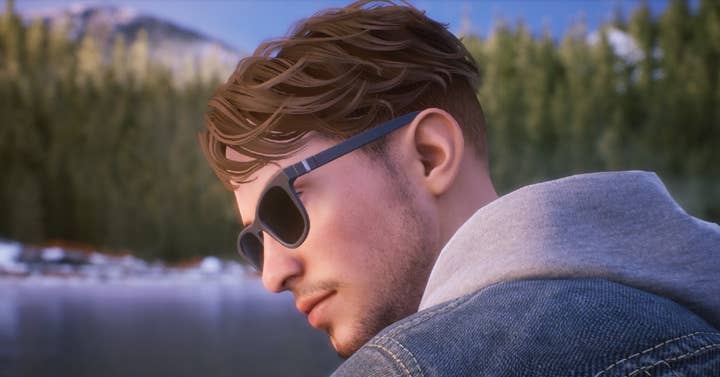How to get a job as a creative director
The GamesIndustry.biz Academy shares advices on how to land one of the most influential roles in games development
Finding a job is no easy task. Our guides can help you to find the right path to the games industry job of your dreams. You can read our other in-depth guides on how to get a job in the games industry on this page, covering various areas of expertise.
Creative director is perhaps one of the most coveted roles in video games development. They are often the face of the team behind the game, credited with steering this ambitious project from conception to completion -- the person with the vision.
Certainly when you speak to creative directors, seeing that vision come to life is one of the most rewarding experiences in a developer's career and one of the many reasons they choose to stay in the role.
"You need to be able to make the difference between a good idea not fully implemented yet and a bad one"
Caroline Marchal, Interior Night
"If you get a kick out of inspiring others, creative direction is the gig for you," says Kieran Crimmins, creative director at Criterion Games. "I love seeing talented people make beautiful new things. The more it happens the more people do it. Creativity breeds creativity and before you know it every team member is delighting you with work you never thought possible. This momentum on a project is infectious and euphoric. It's what gets me out of bed in the morning and tucks me in at night."
Sean Millard, creative director at Sumo Group, adds: "It's the most fun you can have in a game studio," says Sean Millard, creative director at Sumo Group. "I 100% believe that. You get to mix with the industry's brightest and best, to travel and experience life from a very unique point of view. It is easily the best role in game development. It still feels like a vocation, not an occupation -- and that's really rare, I think, and super-special."
Allan Cudicio, creative director and founder of Twin Drums, adds that while creative directors are responsible for a game's main vision, they always need to be open to other ideas. "You should become a creative director if you are not jealous about your creations and you want to turn your front yard into a public park in which, under your light supervision, the whole neighbourhood plants a wonderful garden -- all right I went a bit poetic there but hopefully I was clear."
- What does the role of a creative director involve?
- What education do I need to get a job as a creative director?
- What experience do I need to get a job as a creative director?
- What qualities and skills do I need as a creative director?
- What are the common misconceptions about being a creative director?
- Advice for new and aspiring creative director
What does the role of a creative director involve?
All of the creative directors the GamesIndustry.biz Academy spoke to agreed on how to best define their role: to set the vision for the project or game in question, and ensure the whole team is collaborating towards that goal.
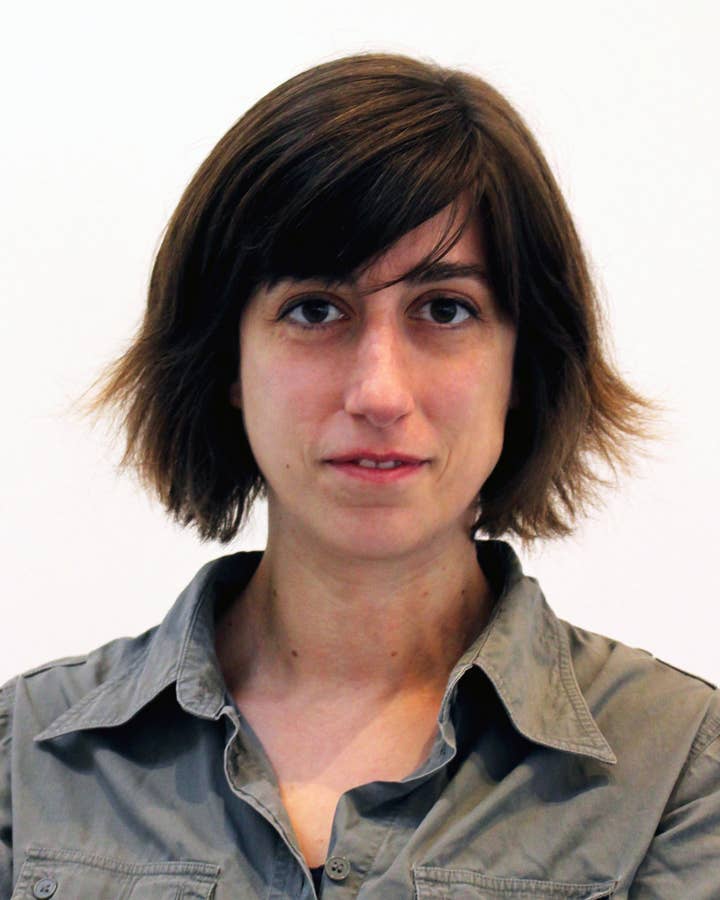
Interior Night's founder, CEO and creative director Caroline Marchal broke down the process into a series of questions that those in the role must constantly ask themselves.
"What experience are we crafting?" she begins. "How do we want the players to feel and think when they play, moment to moment, but also once they're finished playing? Why are we making this, what do we want to change in the world by making this game? What do we want players to reflect on when they play our game? Who is our game for? What type of demographics -- families, teens, women? -- and what type of gamers (or non gamers). What kind of behaviours are we trying to appeal to?"
"And most importantly: What is the X? What makes our game unique? How can the game we're making be summarised in one sentence that the team and the players will be excited about?"
Once the vision is established, creative directors must communicate that as early and often as possible to inspire the team and guide their work. Marchal describes the responsibility as "to nudge people in the right direction, very talented people who own their craft and discipline better than you." And that's not just within the studio.
"Your role is also to safeguard the vision," she says. "There is always some push and pull happening inside the team but also mostly outside, from external partners -- if the game has a publisher, for example -- which is normal. Part of the role of the creative director is to protect the game and the team from these tensions and guarantee the game vision remains consistent and meaningful."
"Being a creative director is not all about doing it yourself, so trust, listening and teamwork are really key"
Katie Goode, Triangular Pixels
In terms of the day-to-day role, it's agreed that much of this communication is handled via meetings. Lots of meetings.
"I spend 50% of my time in meetings listening to people, giving presentations and facilitating collaboration," says Crimmins. "The other 50% is creating direction materials such as presentations, videos and documentation. I really miss being in software and making changes to the build every day, so I often facilitate and take part in hackathons to make up for it."
Cudicio agrees, although adds that the use of documentation to is "highly overrated" in his opinion: "With a solid creative direction, documentation can be relatively light and the sub-team working on specific aspects can usually fill a lot of the gaps -- and that's great, they will own that feature even more."
Florent Guillaume, creative director of Dontnod Entertainment's Tell Me Why, emphasises the need to communicate clearly with external stakeholders in addition to the actual development team.
"The stakeholders need to be reassured that the game will meet their expectations, by reaching the expected sales figures, quality, and reception," he explains. "It's kind of like being a triple headed dragon as you have to care about very different needs, sometimes diverging, between the team, the management and obviously the players, which is always the end goal that you have in mind. At the end of the day, your job is to guide the team into creating the best possible game for your players."
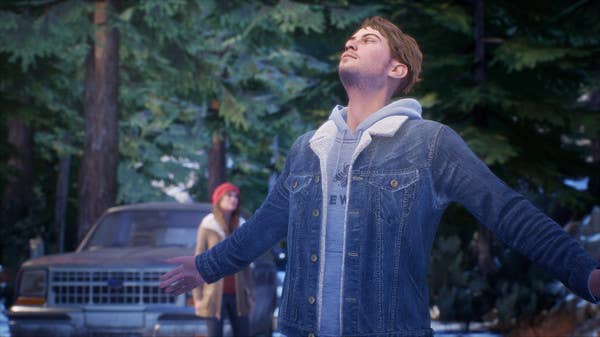
Millard adds that the responsibilities of a creative director can differ depending on the company. He has held the role in development, in a business development situation, and currently holds it in a group-wide capacity to focus on developing Sumo's IP.
"Regardless of the situation, it's a role full of contradictions," he says, "eating humble pie as much as standing triumphantly with fists in the air. You have to be ready to lose as many fights as you win, dust yourself off and start again, which can be soul-destroying if you're not ready for it because you invest so much of yourself into a creative baby, that to have it torn to pieces from the mouthpiece of personal taste, particularly, can hurt like hell. But it's just part of it and you get to roll with the inevitable punches."
What education do I need to get a job as a creative director?
As with many positions we explore for GamesIndustry.biz Academy, there are no strict educational requirements for those wishing to become a creative director.
Dontnod's Guillaume took a more traditional route, studying programming and multimedia -- although he adds that he trained himself on the side for years in order to improve his chances. "[Using the first Unreal Engine] I learned about level design, modeling, animation, programming and about anything that could be modded on those back then," he says.

Marchal also studied multimedia, alongside communication and politics. It was only when gaming eventually became a hobby that she sought a career in development. When she realised a game she was playing -- Quantic Dream's Omikron: The Nomad Soul -- was made by a company in her home country of France, she decided to apply. On securing a job at the studio, she "learned the craft of game design on the job" through her time on Fahrenheit, Heavy Rain and Beyond Two Souls.
There are plenty of examples of people who eventually rose to become creative director seemingly without any relevant education. Crimmins, for example, studied music but, despite the wealth of game courses available, does not regret this. "I learnt a lot about creative collaboration whilst playing in bands and so much about the creative process while composing pieces," he explains. "As long as you're pushing against your limitations, working in a team to make media, you are training your creative direction muscles."
A more outlandish example is Triangular Pixels' creative director Katie Goode, who studied physics and space research at university. During her course, she studied programming and worked part-time as graphics artist -- both of which helped her on the road towards games development.
Millard tells us he has a Fine Arts degree, but adds he has "never used it in games at all". "I may scribble an idea down in a doodle, but never fully realise artwork. Words are more my tool than pictures. But the degree did train my eye and teach me to think on the fly and engage an audience, I guess."
What experience do I need to get a job as a creative director?
Like education, there is no set criteria of experience required to become a creative director. Again, Guillaume took perhaps the most traditional route, starting in games design, working his way up from junior design position to senior, lead design, and then creative director. He began at a small Australian studio 16 years ago, before heading to Ubisoft for a decade, where he worked on the likes of Assassin's Creed, Rainbow Six and Ghost Recon. After his first project, Vampyr, he took on his first creative director role for a project with Microsoft that would eventually become Tell Me Why.
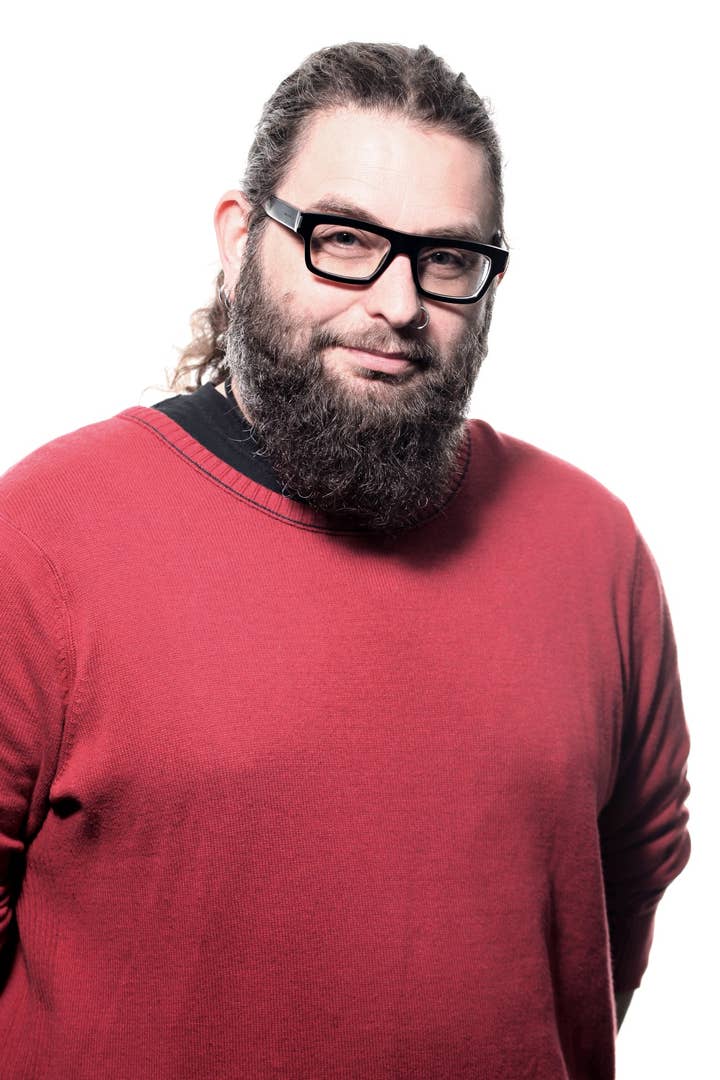
Millard also served as a game designer at companies such as Virgin Interactive, Pure Entertainment, Gremlin Interactive (later Infogrames) and finally Sumo Group.
Three of our panel -- Interior Night's Marchal, Triangular Pixels' Goode and Twin Drums' Cudicio -- worked in various games roles at a range of studios, but only became creative directors when they founded their own studios, essentially balancing their time between a director's duties and those of a CEO.
Crimmins, meanwhile, admits his education in music led him down a "fairly unusual" career path: "I was a musician, then a video editor, then a 3D cinematic artist, then an art director. This multidisciplinary experience really helped me when directing multiple disciplines to the same goal. I started doing many creative direction type roles way before I was even given the title. I never really went after it, it just kind of happened as I proved my worth."
What qualities and skills do I need to be a creative director?
As you might imagine with a leadership position, particularly one as crucial as creative director, the qualities and skills required are manifold. Key is the ability to come up with the central vision for the game -- whether it's your personal vision for a smaller project or a collaborative vision for larger ones -- and make decisions that keep the team on track to make that a reality.
"You need to be able to make the difference between a good idea not fully implemented yet and a bad one," says Marchal. "Trust your gut,which comes with experience, like knowing to see past unfinished sections of the game and projecting on how it will end up looking and feeling.
"There are always constraints from every angle, and you are not the top dog"
Kieran Crimmins, Criterion
"A CD needs to leave enough space for the team to input and contribute while keeping the direction steady, which is a balancing act. You need to assess when it's important to weigh in and when to let go, because you can't white knuckle everything -- it disempowers the team and breaks your spirit.
"It's easy to get lost in details, but the CD job is to take a step back, look at the big picture. While at the same time, you're solicited on very small details, like what colour a car should be. So the ability to switch between big picture and second to second player experience is key. It's like having this Google map ability to zoom in and out real quick."
Guillaume reminds aspiring creative directors that they will not need to be "the one and only idea box," however. Making games is, after all, a collaborative endeavour.
"You need to be humble to let others in your team bring their own creative juice," he says. "Having a vision is great, and you need that. But your vision will be challenged by tens or hundreds of other visions that may or may not go along with what you're trying to achieve. You need to be able to sort all those, to be open to enrich the game's vision with your team's ideas when it benefits the game, but you also need to understand what your pillars are, understand the purpose of your game and make sure it stays strong and doesn't dilute or fragment itself as time passes. It's easy to lose sight of why you're doing things on projects that can be in development for years."
He goes on to add that creative directors don't need much expertise in technical skills -- you should have the experts you need in your team -- but good interpersonal skills are essential: "As a manager of a group of people, taking care of the wellbeing of your team is as important as taking care of your game. There's no success alone, you need your team and the team needs you to create this game you've all been dreaming of. So take care of one another."
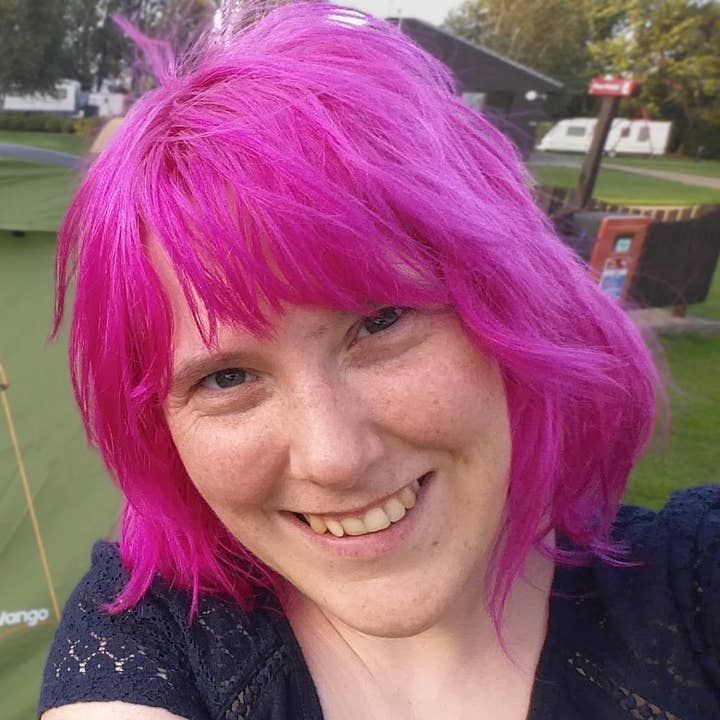
Goode agrees, adding: "Being a creative director is not all about doing it yourself, so trust, listening and teamwork are really key. You need to be able to hear new ideas, research other forms of art and creativity, see how they can be applied to games, and to be able to communicate your vision. Your feedback to your team needs to be encouraging but also focused enough to ensure the vision of the game is kept on track and up to quality. You have to be able to negotiate and fairly discuss with technical and production teams, and come to a conclusion everyone is happy with which is the best for players and the team."
Cudicio emphasises the need to plan long term and think in holistic ways in order to keep that 'bigger picture' perspective on the project, although warns there's a balance to strike here. "Some 'visionaries' are a bit too hands-off and disorganised, so you need to balance that side with keeping your feet in the ground -- i.e. working close to the team and knowing what's going on."
Crimmins talks up three key skills: storytelling, listening and what he refers to "experimental synthesis." The need to listen to colleagues has been well covered by this point, and his point on storytelling applies as much to conveying the vision for the game as it does to the game's actual plot.
"I believe we all think in stories and putting complicated information in this structure is the most effective way I know to inspire and influence," he says. "Also, I do a lot of public speaking, to the team, the company or the press. Being able to spin a good yarn and hold people's attention Is essential."
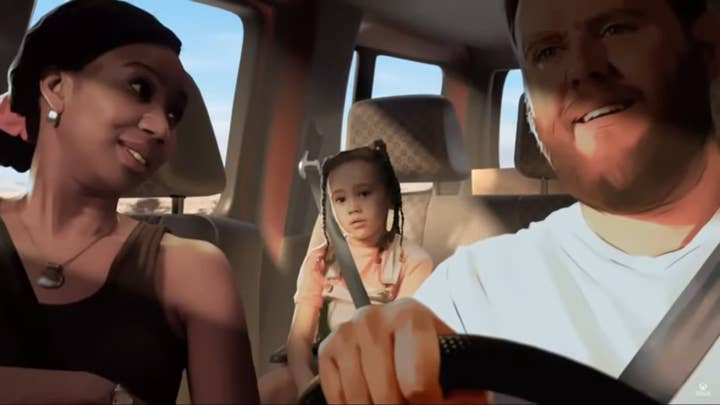
Experiential synthesis is "the ability to hear an idea and imagine the fun vision of what it's like to experience it", with Crimmins adding: "This is much easier if you have a lot of life/work experience because you're likely to have done something similar."
One final skill he recommends is what he calls the "humble conviction paradox", which he explains as: "It's when you know you have a good bit of insight, and you create a direction around it. Many will tell you it can't be done or shouldn't be. You need the confidence to bring them around kindly. Take them on the journey and have them show the way back to you. This requires incredible conviction but also humble understanding. Yes, I know they're contradicting qualities -- that's why it's a paradox."
What are the common misconceptions about the role of creative director?
If you've read this far, you likely already had an idea in your head of what it might be like to be the creative director of a video game. That idea may be accurate enough, but there are some misconceptions our directors are keen to dispel.
"As a manager of a group of people, taking care of the wellbeing of your team is as important as taking care of your game"
Florent Guillaume, Dontnod Entertainment
For Millard, the first is the idea that absolutely anyone can do this job, that it's just about having a good concept and controlling the team bringing it to life.
"It takes a certain type of character to do the role well," he says. "I happen to have a well-rounded creative eye -- I did a Fine Art degree, but I was never an artist, and I enjoy creative writing, which is a big part of what I do. I also (apparently) have this charisma which helps me get people on board with an idea and drum up enthusiasm for it.
"I'm not saying I have these skills with any sense of ego -- I just lucked out that I grew into a role that makes the most of what turns out to be an innate skillset that I could have never predicted."
Cudicio adds: "I think [the role's] perceived as a bit hands-off and bossy sometimes. I see it as very nurturing and down to earth, constantly working with team members while having a birds-eye view on everything."
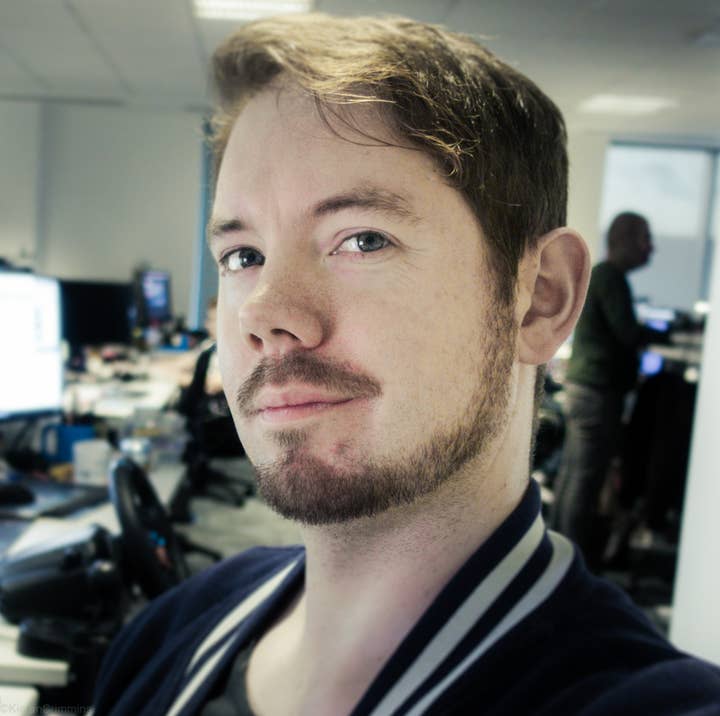
Crimmins says some aspiring creative directors might think landing the role will be the chance to make the game they've always dreamed of -- another misconception about the position. "There are always constraints from every angle, and you are not the top dog. You sit between studio/franchise leadership and the craft teams, all with their own needs and wants. The skill is to make the most interesting thing possible within the constraints that you have."
But the biggest misconception, our directors agree, is that the creative director is in complete control.
"The team makes the game, and you cultivate their direction and inspiration," Crimmins explains. "I like to use an 'Inspire and Influence' model, where no work is bad work, but I will regularly make new direction materials in order to inspire teams in the direction we are aiming for."
Machal adds: "As much as they should have a precise and strong vision for the type of experience they want to make, this is also an evolving process. Firstly, because game development is highly collaborative. So each individual team member brings their sensibility, skillset and creativity to the mix, which enrich the game. Secondly, because game development is moving sands and requires fast decision making and adjustments as you go."
Guillaume adds one last misconception about creative directors he would like to address: "We're not all evil."
Advice for new and aspiring creative directors
Don't expect it to come quickly
Regardless of the experience and skills you may have, creative director is a role that little to no one can fill perfectly when they begin, nor is it a promotion that comes up early in your career. Millard notes that he worked on the studio floor for 20 years before he had the chance to become a creative director.
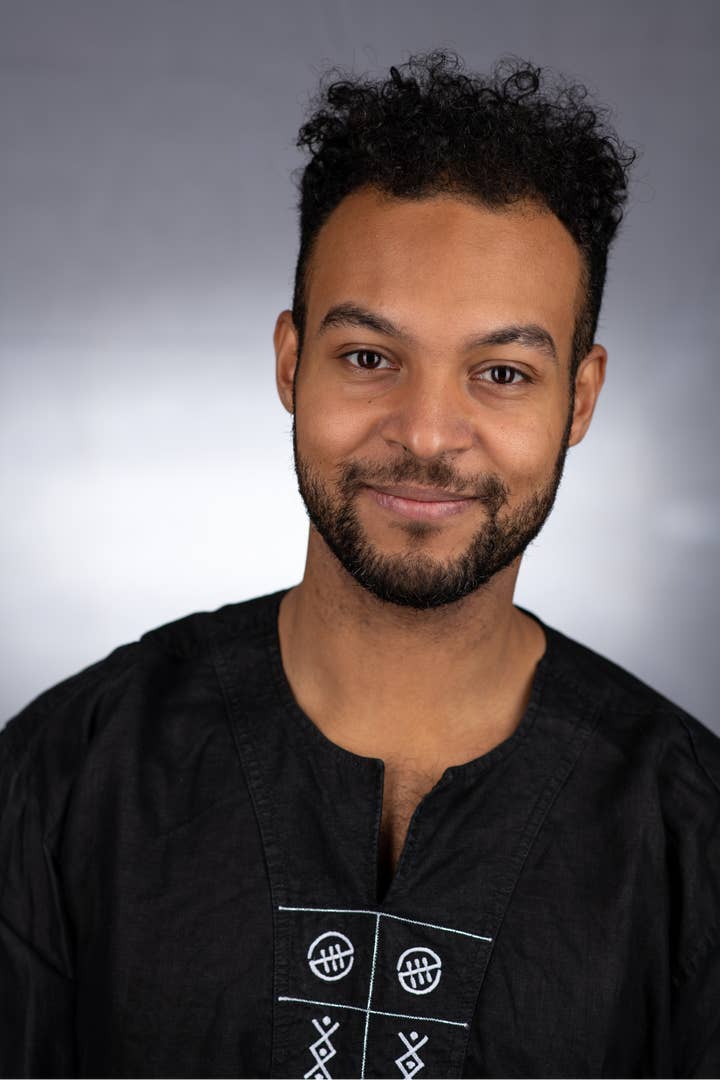
"Don't underestimate the responsibility, hard work and non-stop brain whirring," he says. "Become a culture sponge. Forget games -- where else can you draw your inspiration from? Read. Watch. Listen. If all you do is play, all you'll do is regurgitate the same old claptrap, which just won't wash -- and that's about as far from creative as you can be."
Always work with other people, and learn from them
Since creative director is as much a collaborative position as it is a leadership one, Crimmins advises that developers 'level up' their teamwork skills. Working on as many projects as possible, ideally with different people, can help with this.
"Making games is a team sport and you need to learn how to be the best coach ever," he says. "Listen to your critics and don't take it personally. Criticism is important to get better at anything but often it can hurt, especially when it's really close to the bone. Ironically, it's the harsh criticism that speaks to something you haven't dealt with that can inspire the best change."
Goode agrees: "Being a designer under a few different directors I got to learn what makes them excellent, what didn't work and I would improve on, and what I would do if I was in their shoes. All that experience I managed to get while still being paid and not risking a product or my studio."
Believe in yourself and your vision
Creative director is a role that requires confidence and conviction. It can be difficult and disheartening, but the team needs to feel they are being led by someone who knows what they're doing.
As Guillaume concludes: "Believe in yourself, your strengths, your ideas. Believe in what you have to tell to the world and what matters the most for you. And more importantly believe in others, what they can bring to this vision and how together you will achieve great things."
